If you are involved in a legal case or managing a patient’s long-term care needs, a life care plan is often essential. A life care plan is a comprehensive, detailed document that outlines the projected future medical, therapeutic, and supportive needs of an individual, typically following a significant injury or illness. For attorneys, families, and healthcare professionals, understanding how to proceed with creating and selecting the right life care plan is critical to ensuring that the individual’s needs are met.
What to Look for in a Nurse Life Care Planner
Selecting a qualified nurse life care planner is one of the most important decisions in the process. Not all life care planners are the same, and finding the right one for your case will ensure that the plan is thorough, accurate, and effective.
Here are the key qualities you should look for:
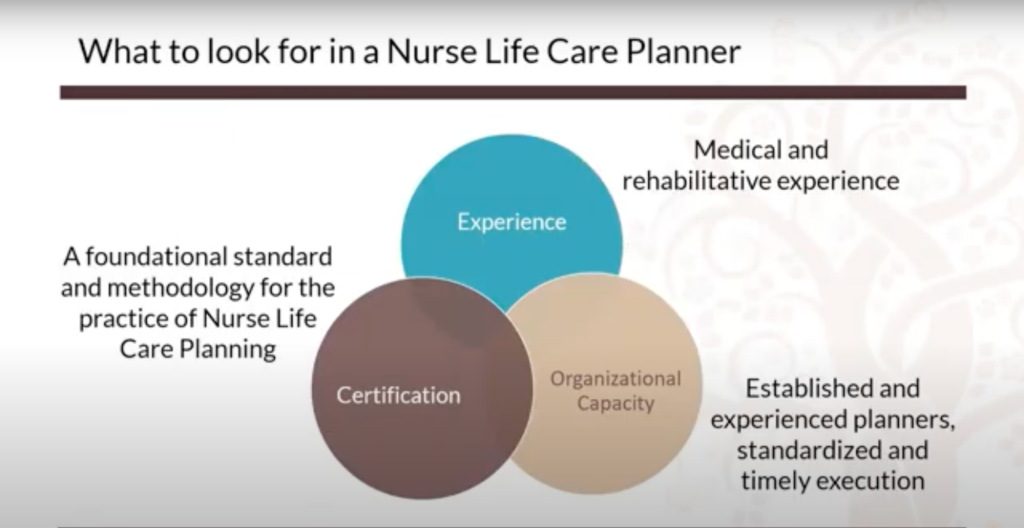
Experience
Nurse life care planners bring specialized knowledge, particularly when it comes to understanding the medical and rehabilitation needs of individuals with complex conditions. It is essential to ensure that the planner has hands-on experience in rehabilitation settings and with patients who have similar diagnoses, symptoms, and rehabilitation needs. As with any medical professional, experience is paramount to being able to accurately assess the patient’s needs and develop a realistic and effective life care plan.
A qualified nurse life care planner should be able to provide insight into various medical conditions and their long-term care needs. For example, if the individual in question has respiratory problems, you would want to ensure that the planner is familiar with the necessary treatments and long-term management strategies for respiratory complications.
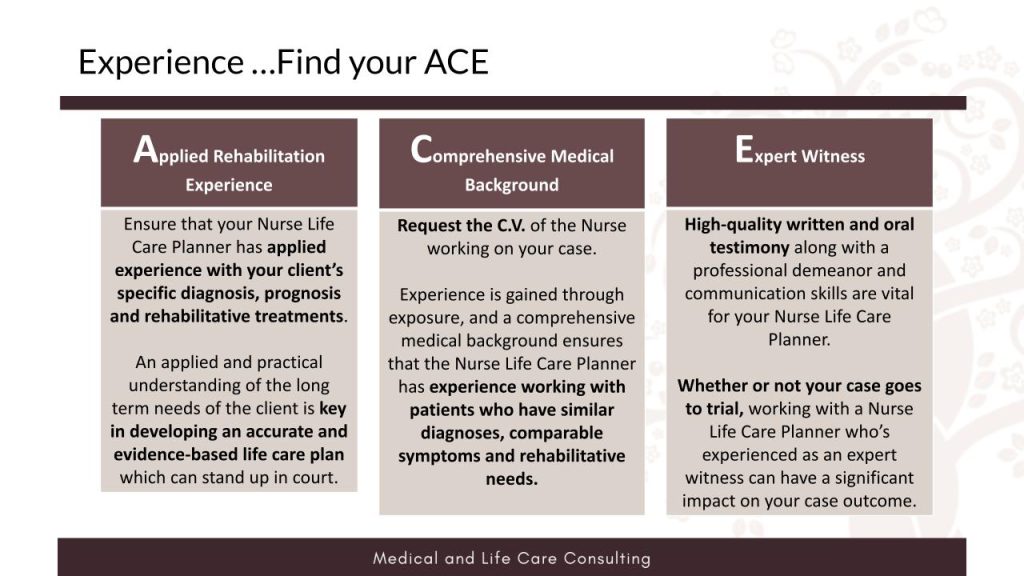
Certification
Certification is the foundation of professional life care planning and should be a critical factor when selecting a planner. A Certified Nurse Life Care Planner (CNLCPR) demonstrates proficiency and commitment to the highest standards of practice. Certification not only validates the planner’s experience but also reflects ongoing professional development, as continuing education is a requirement for maintaining certification. This ensures that the planner stays up-to-date with the latest developments in the field and provides the most accurate and evidence-based plans possible.
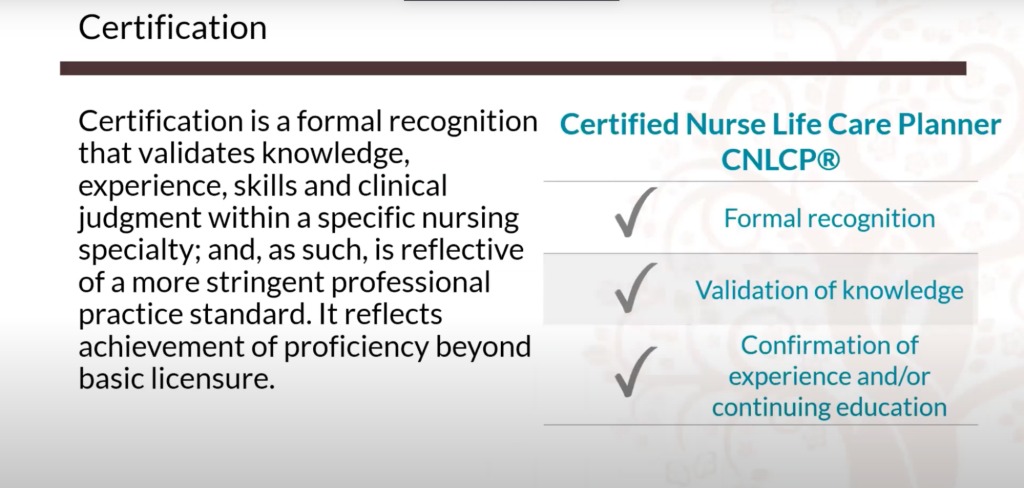
Organizational Capacity
The organizational structure of the life care planning team can have a significant impact on the efficiency and effectiveness of the plan. Some nurse life care planners work as sole proprietors, while others are part of larger firms or insurance companies. Working with a firm can provide benefits in terms of resource availability, especially for complex cases. A team approach ensures that the life care plan is completed in a timely and efficient manner, often with additional support staff to help gather and organize information.
For example, in large firms, life care planners often collaborate and conduct peer reviews to ensure the highest quality of work. Peer review ensures that the life care plan is meticulously checked for accuracy, completeness, and appropriateness. Having a team also allows for backup planners if someone is unavailable, ensuring that deadlines are met without compromising the quality of the plan.
Understanding the Case
Once you have selected your nurse life care planner, the first step in the process is to confirm that there are no conflicts of interest, which includes identifying opposing counsel. The next step is to ensure they fully understand the details of the case. This includes understanding whether the case involves pediatric, adult, or neonatal issues. The nurse life care planner will then collect relevant contact information and determine which products (life care plans, estimates, cost projections) will be needed for the case.
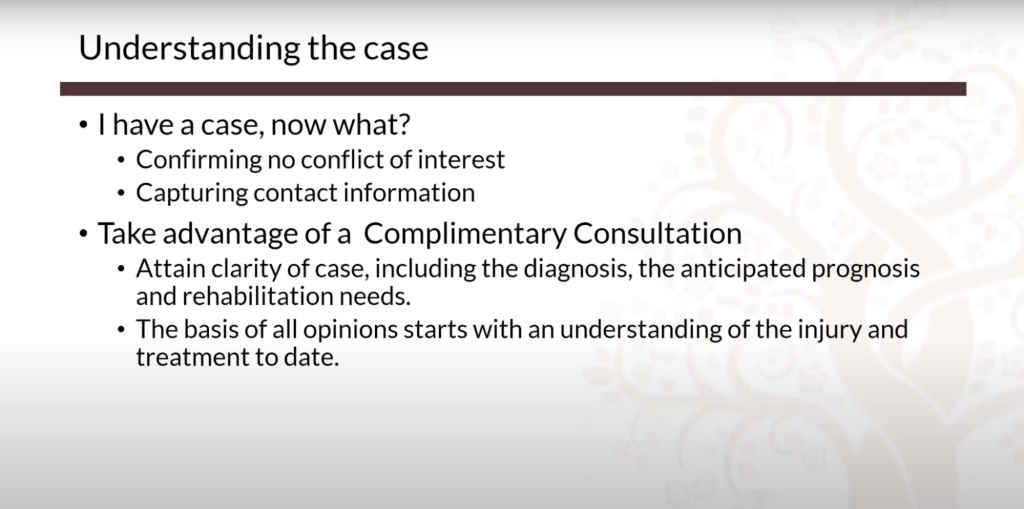
Once these initial steps are completed, the life care planner will engage in discussions with the attorney to gain a deeper understanding of the specific case details. This includes reviewing the diagnosis, prognosis, treatment history, and rehabilitation needs of the individual involved. A thorough understanding of these factors is essential in producing a life care plan that is tailored to the individual’s specific needs.
Identifying the Appropriate Solution for Your Case
Once the life care planner has reviewed all necessary medical records, treatment histories, and relevant documents, they will begin the process of identifying the most appropriate solution for your case. Life care planners offer a variety of services and products based on the needs of the case:
- Focused Estimate: A quick, focused estimate provides information on the cost of specific treatments or procedures, such as a knee replacement or spinal cord stimulator.
- Medical Cost Projections: These projections are commonly used by insurance companies or attorneys and are not for court use. They provide a summary of the patient’s injury and treatment history and estimate future medical costs based on the current treatment plan.
- Life Care Plan Projection: A more in-depth report that includes a chronological summary of medical records and a detailed itemized list of goods and services required for the patient’s lifetime care, with cost research for each item.
- Comprehensive Life Care Plan: This is the most thorough and detailed product. It includes an extensive review of medical records, interviews with family members or healthcare providers, and a full assessment of the patient’s current condition. The planner will provide an itemized treatment plan for medical and non-medical services, along with detailed cost estimates for each.
Each type of product is tailored to meet the needs of the specific case, ensuring that the right solution is chosen based on whether the case is going to trial or mediation, or if it requires insurance projections.
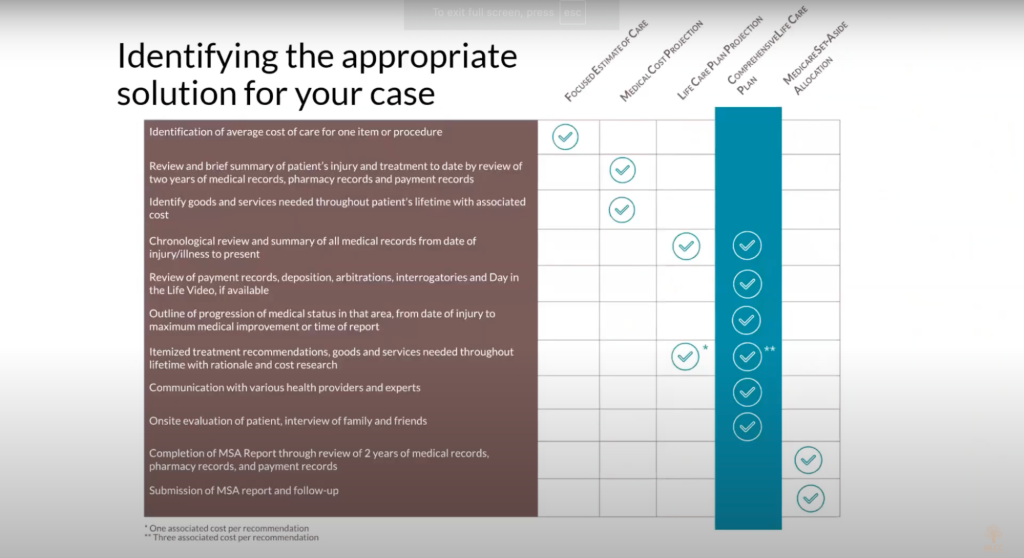
Roles and Responsibilities of Your Nurse Life Care Planner
The life care planner has several key responsibilities in the creation of a comprehensive and effective life care plan:
- Reviewing Medical Records: The planner will conduct a thorough review of the individual's medical records, payment histories, and any other relevant documentation to gain a full understanding of the injury or illness and its treatment to date.
- Identifying Needs: They will identify both current and future medical, therapeutic, and non-medical needs, taking into account any long-term impairments or disabilities caused by the condition.
- Cost Estimation: Using the information gathered, the life care planner will research and estimate the cost of the recommended treatments and services throughout the patient’s lifetime.
- Creating the Plan: The planner will prepare a detailed, itemized life care plan that includes all of the identified needs, supported by rationale and cost estimates, with the goal of ensuring the individual receives the necessary care over the long term.
- Providing Expertise and Testimony: If the case goes to trial, the nurse life care planner may be called upon to testify as an expert witness. Their testimony can significantly influence the outcome of the case, making their professional demeanor, communication skills, and ability to explain complex medical issues crucial.
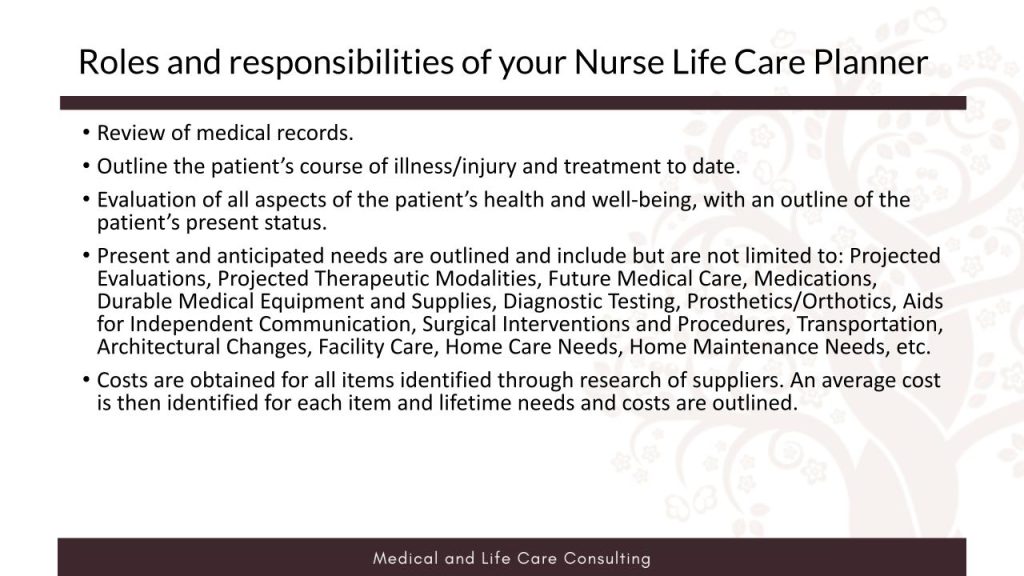
What to Expect When You’ve Selected Your Nurse Life Care Planner
Once you’ve selected a nurse life care planner, you can expect a streamlined process that involves clear communication, thorough documentation, and timely delivery. The planner will work closely with you to set expectations and clarify timelines. They will also ensure that all personal and medical information is shared securely, using encrypted communication channels and secure file-sharing methods.
The life care planner will then conduct their analysis and provide a comprehensive report on the individual’s needs and the associated costs. Throughout this process, they may reach out for additional information, including follow-up consultations, interviews, or on-site visits, to ensure that the life care plan reflects all aspects of the individual’s situation.
Key Takeaways: The Importance of a Thorough and Accurate Life Care Plan
A well-executed life care plan is essential for ensuring that an individual’s long-term care needs are met. Whether for legal purposes, insurance claims, or healthcare planning, a comprehensive life care plan provides clarity and direction, ensuring the individual’s needs are addressed with the highest level of care and precision.
By selecting a nurse life care planner with the right experience, certification, and organizational capacity, you can trust that the life care plan will not only be accurate but also a critical resource for the individual’s future care and well-being.
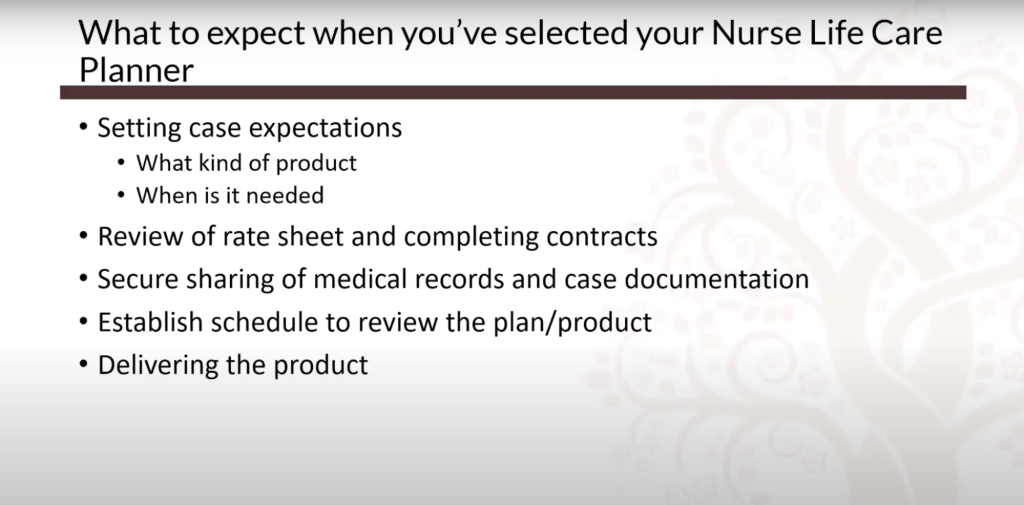
FAQs: Nurse Life Care Planning
A Nurse Life Care Plan is a comprehensive document that outlines the future medical, therapeutic, and supportive care needs of an individual. It includes detailed cost projections for treatments, services, and resources required over the person’s lifetime, typically following a significant injury or illness.
Life care plans are often needed in legal cases, insurance claims, or long-term care planning. Attorneys, families, and healthcare professionals use these plans to ensure the individual’s care needs are identified and funded appropriately.
Look for a Certified Nurse Life Care Planner (CNLCPR) with hands-on experience in rehabilitation settings and working with individuals who have complex medical conditions. Certification ensures they are up-to-date with the latest developments and adhere to professional standards.
In legal cases, the life care planner may serve as an expert witness, providing testimony on the individual’s care needs and the associated costs. Their analysis and testimony can play a pivotal role in case outcomes.
Share all relevant information, including medical records, treatment histories, and specific case details. Open communication and a clear understanding of expectations are crucial for accurate and effective planning.
Some planners work independently, while others are part of larger firms. Firms often offer the benefit of team collaboration, peer review, and resource availability for complex cases.
Yes. Life care plans can be revised as the individual’s condition or care needs change. Regular updates ensure the plan remains accurate and effective.






